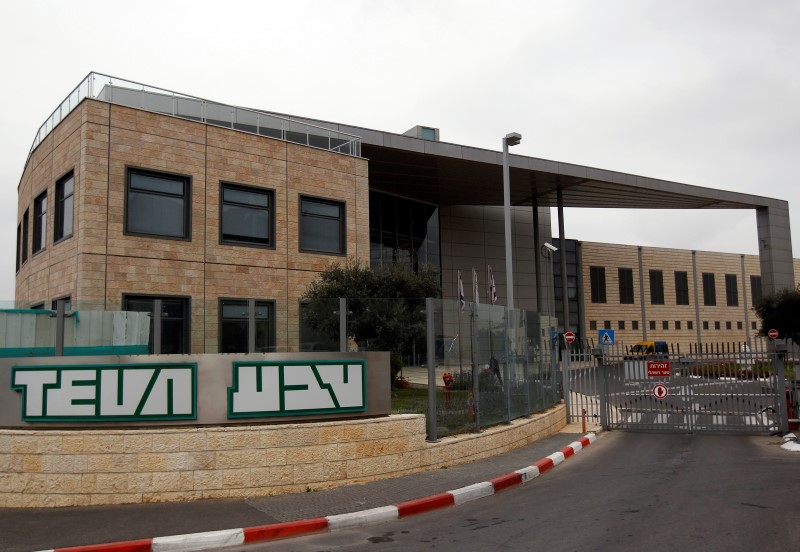By Foo Yun Chee
BRUSSELS (Reuters) - Teva Pharmaceutical (NYSE:TEVA) Industries (TA:TEVA) is expected to win EU antitrust approval for its $40.5 billion bid for Allergan's (N:AGN) generics unit after agreeing to sell off some of its products to appease regulators, three people familiar with the matter said on Wednesday.
Teva, the world's biggest generic drugsmaker, will divest some drugs already on the market and others in the pipeline to address competition concerns by the European Commission, the people said. The package includes products from both Teva and Allergan.
Other sources had previously told Reuters that assets worth about $1 billion in the United States, Europe and the Middle East would be sold in order to secure the green light from regulators.
Teva will gain bigger economies of scale, a crucial element in the low-margin generic drugs business, with the deal, the largest in Israel's corporate history.
The Commission, which is scheduled to decide on the case on Thursday, did not reply immediately to an email for comment. Teva declined to comment.
Shares of Teva closed up 3 percent to $57.90 on the New York Stock Exchange, outpacing a 0.7 percent gain for the ARCA Pharmaceutical Index (DRG) of large drugmakers.
Morningstar analyst Michael Waterhouse said Allergan's generics business ranks as one of the best in the industry and will considerably strengthen Teva's extensive product line.
Teva will gain a number of products from Allergan that have less competition, and therefore more stable pricing, than typical generics, Waterhouse said. They include formulations of Johnson & Johnson's (N:JNJ) Concerta treatment for attention deficit disorder.
Wells Fargo (NYSE:WFC) analyst David Maris said he expects the Teva-Allergan deal to be completed in April, after winning approvals from EU and U.S. regulators.
"We see no hurdles to the deal closing as expected," Maris said. Teva, which has extensive sales forces in Europe and the United States, will obtain big cost savings by having more products to sell through its existing infrastructure, he added.
The deal has triggered a warning from the American Antitrust Institute that a more concentrated generic market usually comes with higher prices. The think-tank also said divestments may not be enough to ensure competition in the market in a letter to the U.S. Federal Trade Commission in January.

Dublin-based Botox-maker Allergan in turn is slated to be acquired later this year by Pfizer Inc (N:PFE) in a $160 billion deal, creating the world's largest drugmaker.